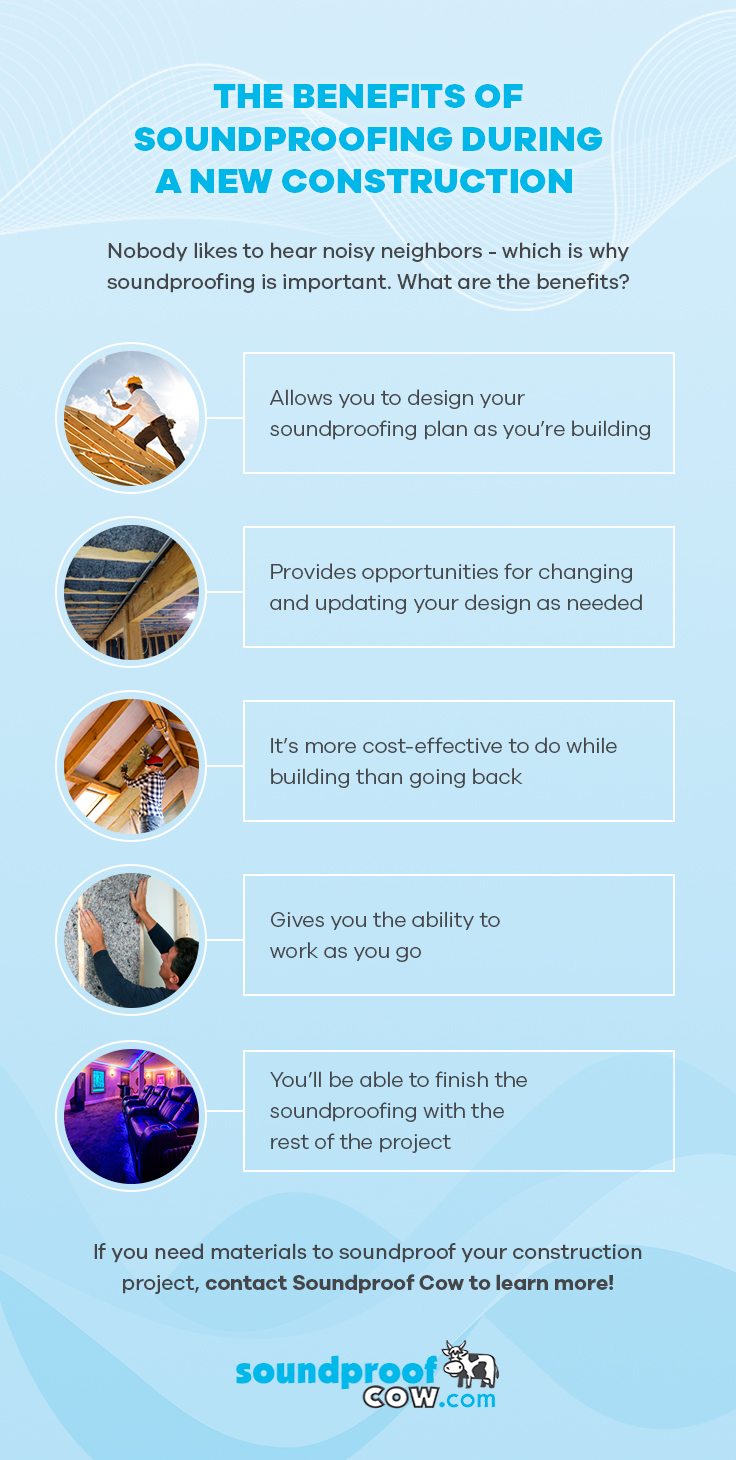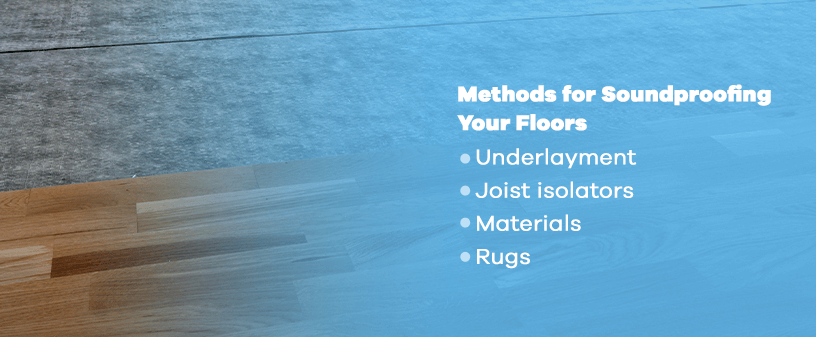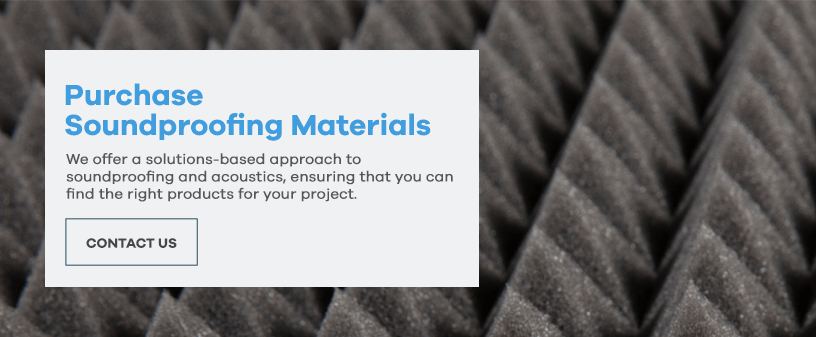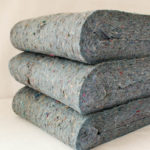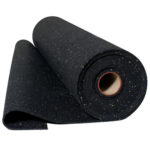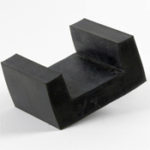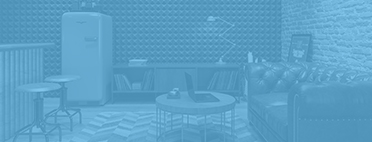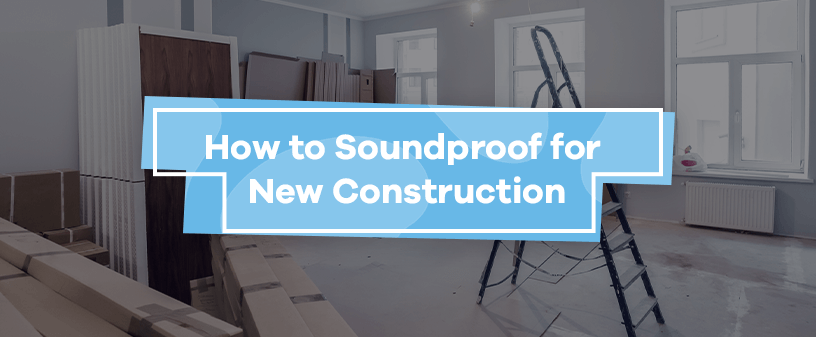
A new construction project is always an exciting time. Whether you are building a new home, store or something else, you will be able to look at the finished project and take pride in what you created.
Once you complete your construction project, you do not want to discover after the fact that your neighbors can hear everything that happens inside your building. Whether it be business discussions, music or casual conversation.
Fortunately, there is a simple way to avoid this issue — soundproofing the building. Soundproofing your building during the construction phase helps keep sounds inside.
Benefits of Soundproofing During the Construction Phase
Knowing how to build a soundproof room or building is important, but so is knowing when to build it. The finished product is more effective when you incorporate soundproofing into the design and implement the plan during construction. There are several benefits to soundproofing a building during the construction phase.
It is more efficient and cost-effective to soundproof as you build. Soundproofing after the building is done may require cutting open the walls, pulling up the floors or otherwise undoing your work in order to lay soundproofing material. When you soundproof during the construction phase, you are able to work as you go and finish with the building.
Soundproofing during the construction phase allows you to design and update your soundproofing plan as you build. If your building will have many windows, for example, you can plan in advance to compensate when you soundproof the ceiling and floors.
Questions to Consider When Soundproofing a New Building or Room
Answering the following questions will enhance your decision-making so that the acoustic construction choices you make address the need.
What Is the Building’s Purpose?
Schools, manufacturing facilities, music studios and single-family homes have different soundproofing needs. Knowing the type of building — and the noise regulations it may need to meet — will help to determine the amount of soundproofing to incorporate.
What Will Be the Most Prominent Noise Sources?
A room with loud industrial machinery will require a stronger soundproofing strategy than a classroom. Knowing the sound sources and decibel levels to expect helps to refine the plan.
What Types of Noise Will Be Present?
Sound falls into two categories — airborne and impact. There are different techniques for blocking airborne noise and muffling impact vibrations, so balance the treatments according to the noise the most prominent sources produce. A room with a massive speaker system requires measures for airborne noise, while impact noise solutions can dampen structural vibrations from pipes and air conditioning infrastructure.
How Much Noise Reduction Is Necessary?
Targeting a specific noise reduction value can improve the results. Homes and apartments may require design elements and soundproofing materials that keep sound transmission within local ordinances and building codes. Many industrial buildings must accommodate noise exposure and transmission regulations from the Occupational Safety and Health Administration (OSHA).
Which Parts of the Building Require the Most Soundproofing?
Soundproofing plans should account for the location of loud machinery and the direction that prominent noise sources face. In a noisy warehouse, the walls adjacent to offices will need more attention than others. A music studio or theater requires precise treatments based on speaker placement or listening areas.
Are the Soundproofing Materials Safe?
Fire safety is a crucial factor when designing a building and choosing materials. Fire-rated soundproofing materials can reduce the spread of flames, so choose the safest options. Soundproofing insulation with a Class A Flammability Rating, such as Quiet Batt® Soundproofing Insulation, passes strict American Society for Testing and Materials (ASTM) tests.
How to Soundproof Your Building
Now that you know the benefits of soundproofing during the construction phase, you may be eager to start. There are three different points from which you can soundproof the building — the ceiling, the floor and the walls. Each point has different methods of soundproofing, which work together to minimize the sound that escapes from the room.
Ceiling Soundproofing During New Construction
Soundproofing the ceiling is particularly important if your building will have multiple functional stories. Soundproofing your ceiling will prevent upper-level occupants from bothering residents on lower floors. There are several steps involved in soundproofing a ceiling:
- Insulation: A thick layer of insulation helps regulate your building’s internal temperature and muffle sounds. You can achieve this effect with standard insulation materials, such as mineral wool. You can also purchase special soundproofing insulation for even better sound abatement. Whatever material you choose, make sure it is tightly packed between the ceiling joists.
- Sound barrier: Sound barriers create a layer between the insulation and the ceiling layer, helping to disperse sound.
- Resilient clips: Sound clips prop up the ceiling layer over the insulation and sound barriers, further dispersing sounds before they can travel through the ceiling. Vibration isolation clips will also help deaden sounds on impact.
Shop Ceiling Acoustic Treatment
Floor Soundproofing During New Construction
Much like ceiling soundproofing, soundproofing a floor is important if your building has multiple functional stories. Soundproofing your floors will prevent you from bothering lower-floor occupants. There are several methods for soundproofing your floors:
- Underlayment: A floor underlayment is a layer of material placed under the floor. Similar to insulation placed in walls or ceilings, the purpose of this material is to dampen sounds. Underlayment can be laid during construction, though you can also place it under pre-existing floors. While there are several different types of underlayment, one of the best choices is two layers of subfloor with a noise-canceling compound sandwiched between them.
- Joist isolators: You can place joint isolators under your floor during construction. These materials isolate sounds and deaden them before they travel through your floors.
- Materials: Different flooring materials cancel sound better than others. For example, you may like the look of hardwood floors, but they become warped and creaky over time. Choosing your flooring material with soundproofing in mind can help cut down on soundproofing costs further down the line. Note that underlayments can cut down on the age-induced noise increase that comes with some floor types.
- Rugs: If you are serious about soundproofing your floors, rugs or carpeting are a must-have. While thick fibers are better at blocking out sounds, any material will work to an extent, especially when paired with other soundproofing methods.
Wall Soundproofing During New Construction
Soundproofing the walls is most important if you have close neighbors. It will prevent them from hearing your noises and help you avoid hearing their own. However, walls can also be among the most difficult parts of the house to soundproof due to entry points like doors and windows. Keep these tips in mind when soundproofing your walls:
- Insulation: A thick layer of insulation around the wall joists can help to muffle the sounds that pass through. You can get a traditional insulator, such as fiberglass, or use a specially designed sound-canceling insulation material. Make sure your walls are thickly lined and fill all unnecessary spaces to maximize your soundproofing.
- Resilient clips: Sound clips placed inside the wall during construction can help control sounds. Installing them on your own can be complicated, so consider seeking professional help to do so.
- Electrical outlets: There are several natural weak spots in walls where errant sounds can pass through, including electrical outlets. While sealing up the entire outlet is not an option, you can partially seal them with specially made boxes or putty pads.
- Doors: Doors are another place where sounds can leak through your walls. Soundproofing a door can be difficult, as sealing it completely would make it impossible to open. However, you can make sure the door is made of sturdy, sound-blocking material and use door sliders or other removable gaskets to minimize sounds.
Door Soundproofing During New Construction
Soundproofing efforts lose value if sound escapes through the door. There are a few crucial factors to weigh when selecting and soundproofing a door:
- Surface transmission: The type of door determines the baseline transmission level and the need for further soundproofing treatment. Thickness and density are essential, so wooden doors perform best. A solid wood door is an excellent choice. Hollow-core doors are cost-effective, but they require additional interior and exterior soundproofing materials.
- Floor gap reduction: The gap between the door and floor can thwart the sturdiest soundproof doors. Leave as little room as possible and include a door sweep to seal the remaining gap.
- Perimeter gap reduction: Space beside and above the door allows sound to leak as well. Measure the door and frame precisely to eliminate gaps, then install a perimeter seal in the door frame.
- Surface reflections: A door’s hard surface reflects sound energy, contributing to echoes and reverberation. Reflections will occur regardless of the door’s material. Attach absorbent materials like acoustic door panels so the room is ready for low-noise use on day one.
Purchase Soundproofing Materials
Soundproofing a building during the construction process is an efficient way to minimize the sounds coming from your building. You can create and update your soundproofing plan as you go. With new construction soundproofing, you will be able to finish the soundproofing with the rest of the project, saving you the trouble of installing new materials once you have completed the building.
If you need materials to soundproof your construction project, choose Soundproof Cow. We offer a solutions-based approach to soundproofing and acoustics, ensuring that you can find the right products for your project. Browse our online shop and see what products work best for you, or contact us today to request a free acoustic evaluation!
Learn More About Soundproofing a Construction Area
How to Reduce Excavator Cabin Noise



